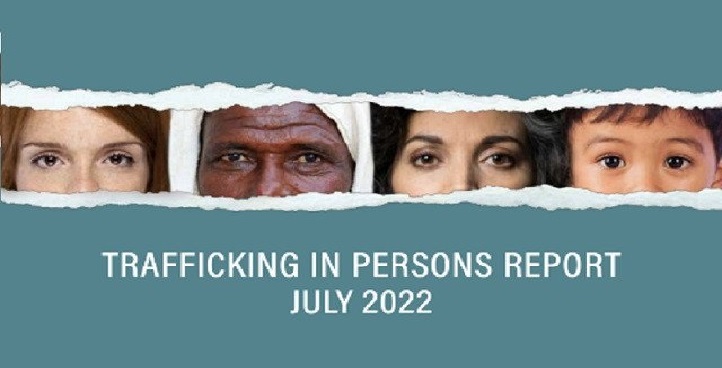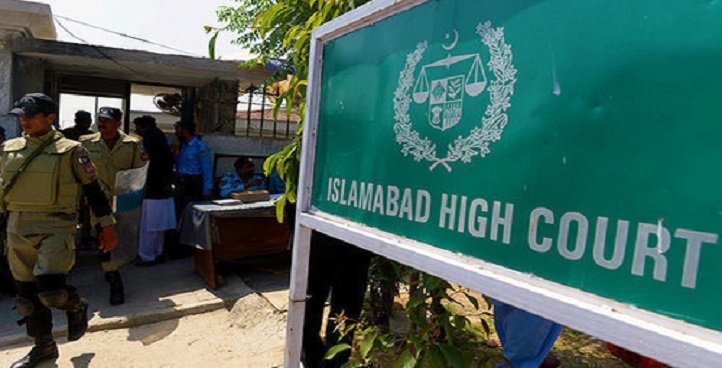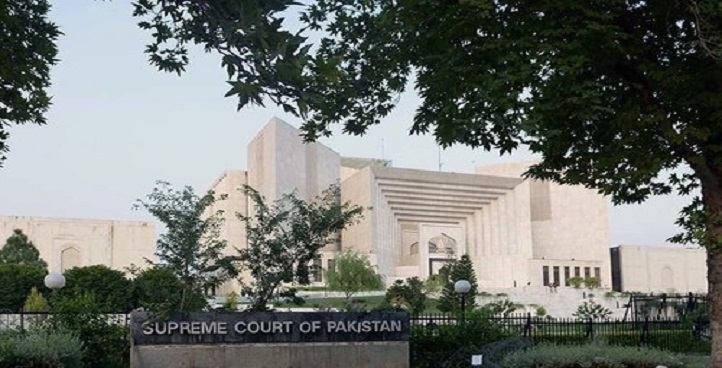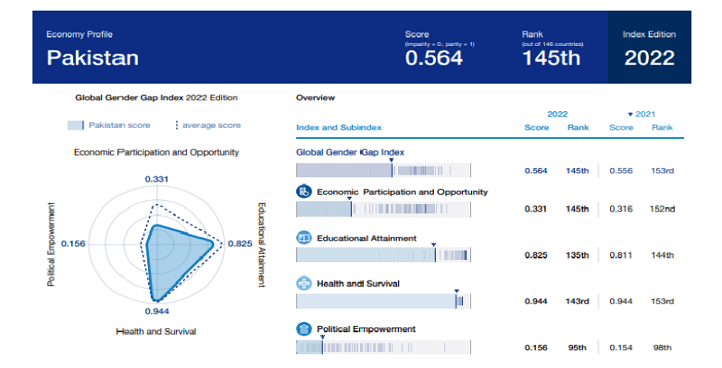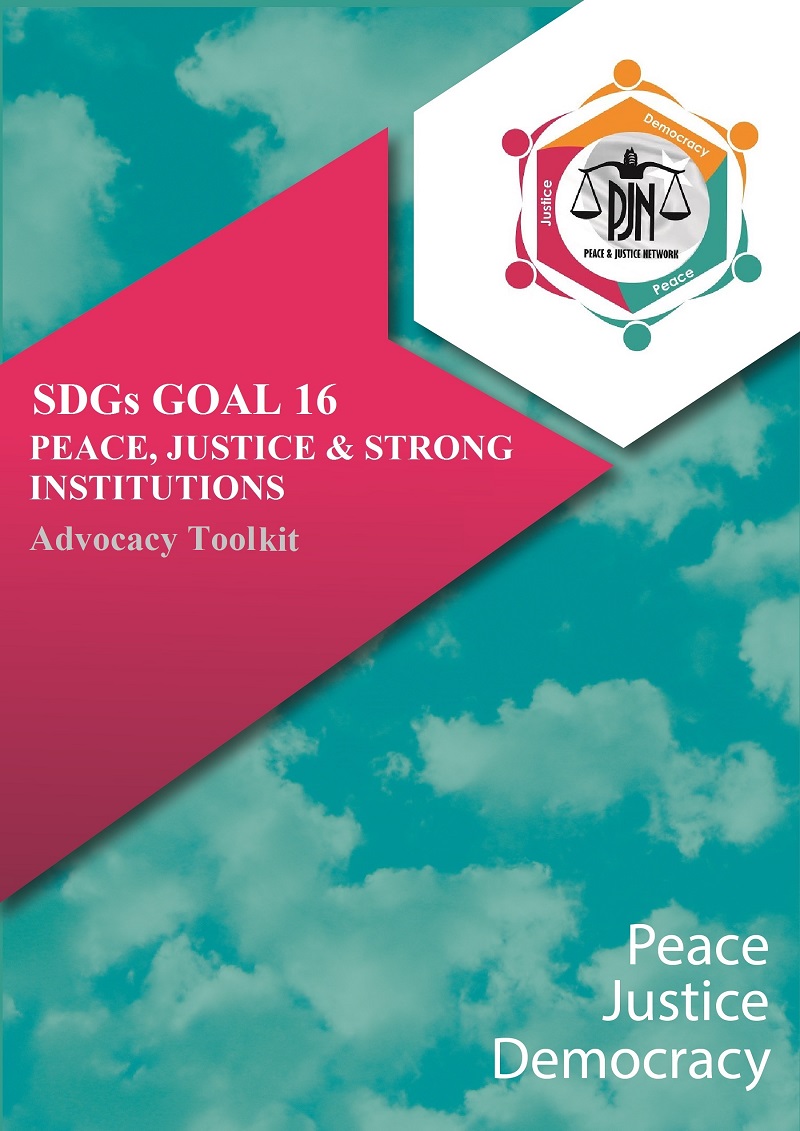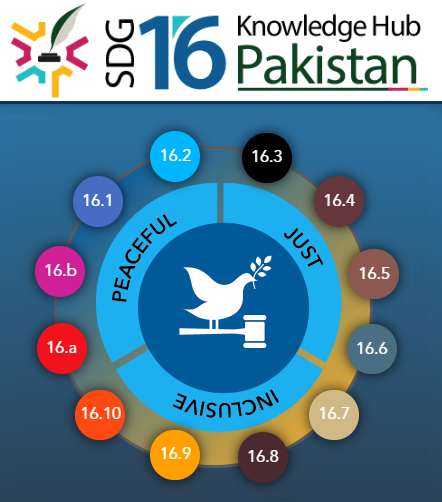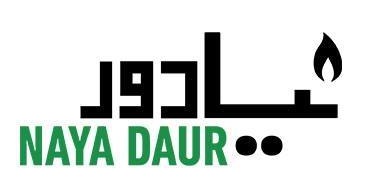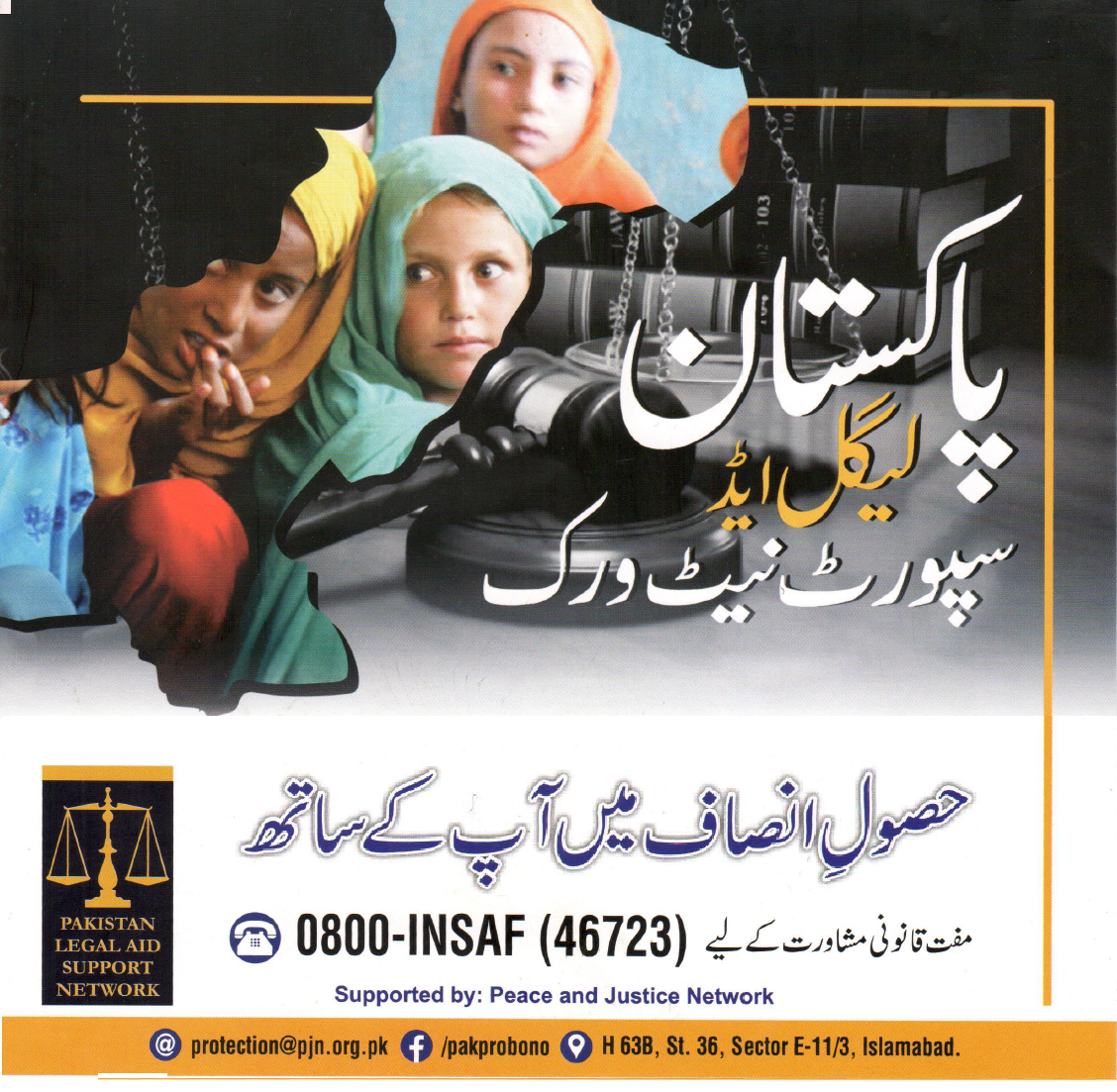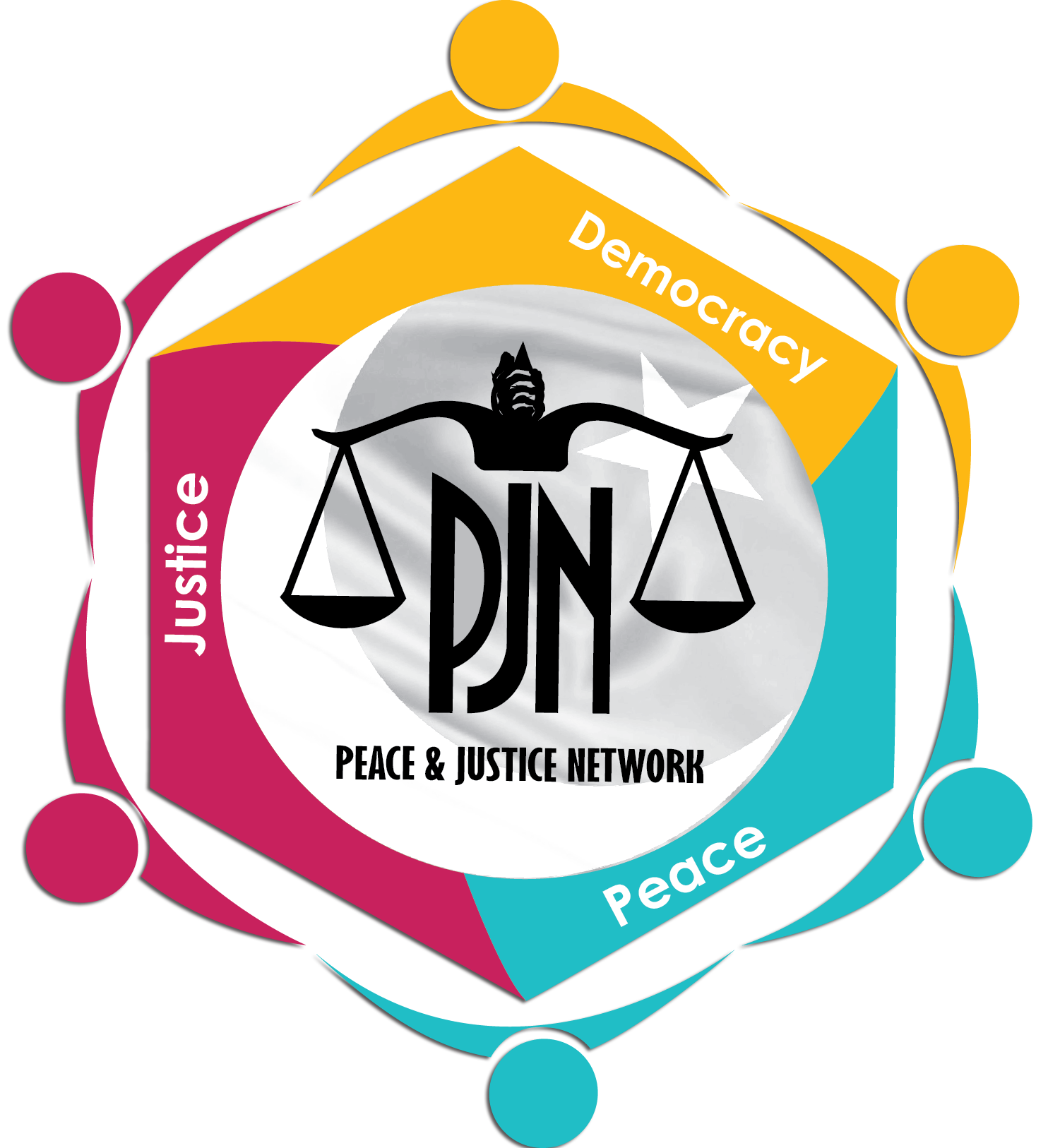

Pakistan's human trafficking rating improves as US takes it off 'watchlist' (24 Jul, 2022)
IHC introduces ‘Justice Reform Project’ (13 Jul, 2022)
Over two million cases pending in courts across country (13 Jul, 2022)
Pakistan second-worst country on Global Gender Gap Index: WEF report (13 Jul, 2022)
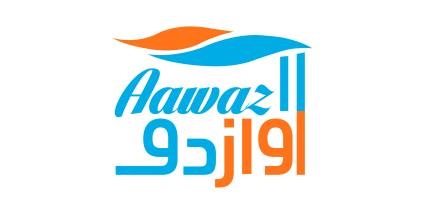
AAWAZ II Program Phase II - EOI for District Implementing Partners (19 May, 2022)
PJN's SDG 16 Network Advocacy Tool-Kit
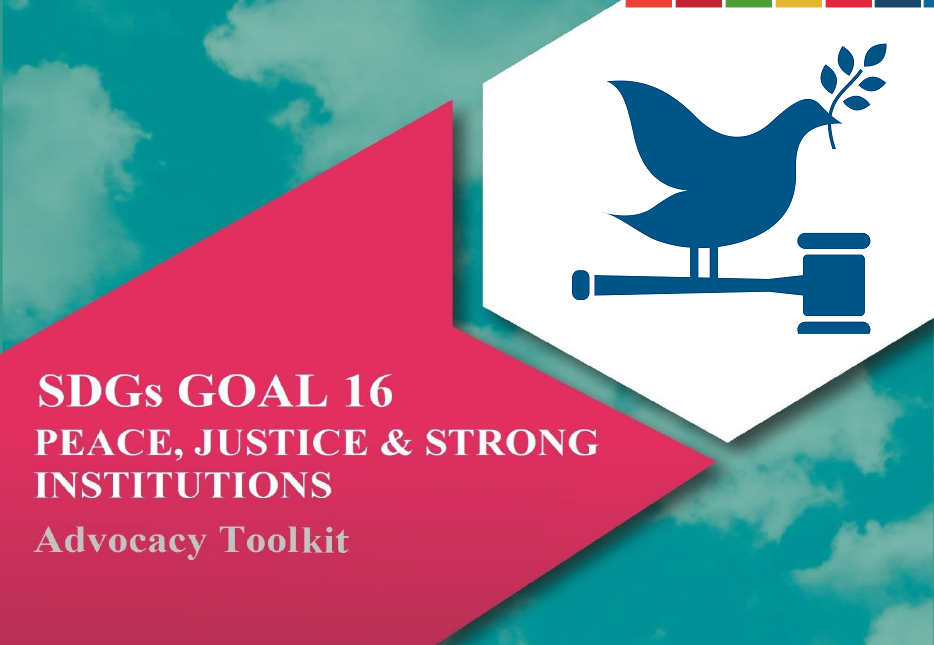
Sun, December 24, 2017
Without peace, stability, human rights and effective governance, based on the rule of law - we cannot hope for sustainable development. Open, inclusive, accountable and effective governance and peaceful societies are both outcomes and enablers of sustainable and equitable development.
The inclusion of Goal 16 was a major course correction for the global development community. Dropping governance from development planning was a major oversight. But the ‘governance’ catchall papers over several distinct and disparate domains of knowledge and practice: human rights, law and justice; anticorruption; transparency and the right to information; violence and conflict; public management and policy; parliaments and democracy. Practitioners tied to each domain have hardly any history of interaction – much less collaboration – on a scale Goal 16 now requires of them.
Needless to say, the political economy challenges tied to Goal 16 are also exceptional, especially where it seeks to control corruption, equalize access to justice, enhance representation and end discrimination. Progress in any of these areas would require realignment in the political and economic interests of powerful stakeholder groups that are deeply invested in the status quo. These competing interests become multiplied manifold when SDG implementation and monitoring needs to be decentralized and led by provincial and local governments, following the 18th Constitutional Amendment, the passage of provincial local government laws and the elections of local governments across the country.
Moreover, the challenge to integrate the three pillars of sustainable development (economic, social and environmental) into a single policy approach is a big one. Also the Monitoring and Reporting Framework (MAPS) initiative has identified serious gaps between the availability and requirement of data for effective monitoring and reporting of progress to meet the SDGs. Of the 231 indicators recommended by the UN Statistics Commission for tracking SDGs progress, data is available for only 125 indicators at the national level, 71 at the provincial level and a dismal 27 at the district level. SDGs covering health, sustainable consumption and production, environmental protection and governance (Goal 16) are at a particular disadvantage. Most of the indicators mainly on Goal 16 data is not regularly produced and standards need to be developed. So this required extensive deliberations with all the stakeholders including civil society.
In order to overcome these challenges, being a specialized civil society national network on Goal 16, PJN will be working with other related stakeholders to build institutions which can strengthen democracy, deliver quick and inexpensive justice, and resolve conflict in a way that protects the rights of citizens, as enshrined in the Constitution, laws and international commitments pertaining to Pakistan through following initiatives:
- Collaborate for the development and promotion of SDG 16 Knowledge Hub and Center of Justice Statistics as well as development of indicators framework of SDG 16 and to establish roadmap for achieving its goals/targets.
- Collaborate for strengthening rule of law, ensuring legal empowerment, protection of fundamental rights and access to justice for vulnerable population mainly focusing women, children, persons with disabilities, minority communities, and transgender in Pakistan by utilizing mutual strengths and existing frameworks.
- Collaborate for strengthening the capacity of civil society organizations so that they can play their role of making service providers accountable and play role in good governance in context of SDG targets achievement. They will also play role in monitoring progress through data collection, reporting and monitoring against SDG targets/indicators. Under the collaboration, PJN will ensure the network presence across Pakistan and UNDP will provide technical support for capacity building of network organizations.
PJN SDG 16 Advocacy Tool-Kit 2030
Through consultative process and with the support of Global TAP Advocacy work, PJN has comeup with the Civil Society “Advocacy Strategy” as a resource on the implementation of and accountability for Goal 16 and the broader 2030 Agenda for Sustainable Development in Pakistan. Civil society plays a vital role in the socio-economic development of countries and ensure transparency and accountability which is harbinger for inclusive society.
Copyright © 2024 pjn.org.pk
